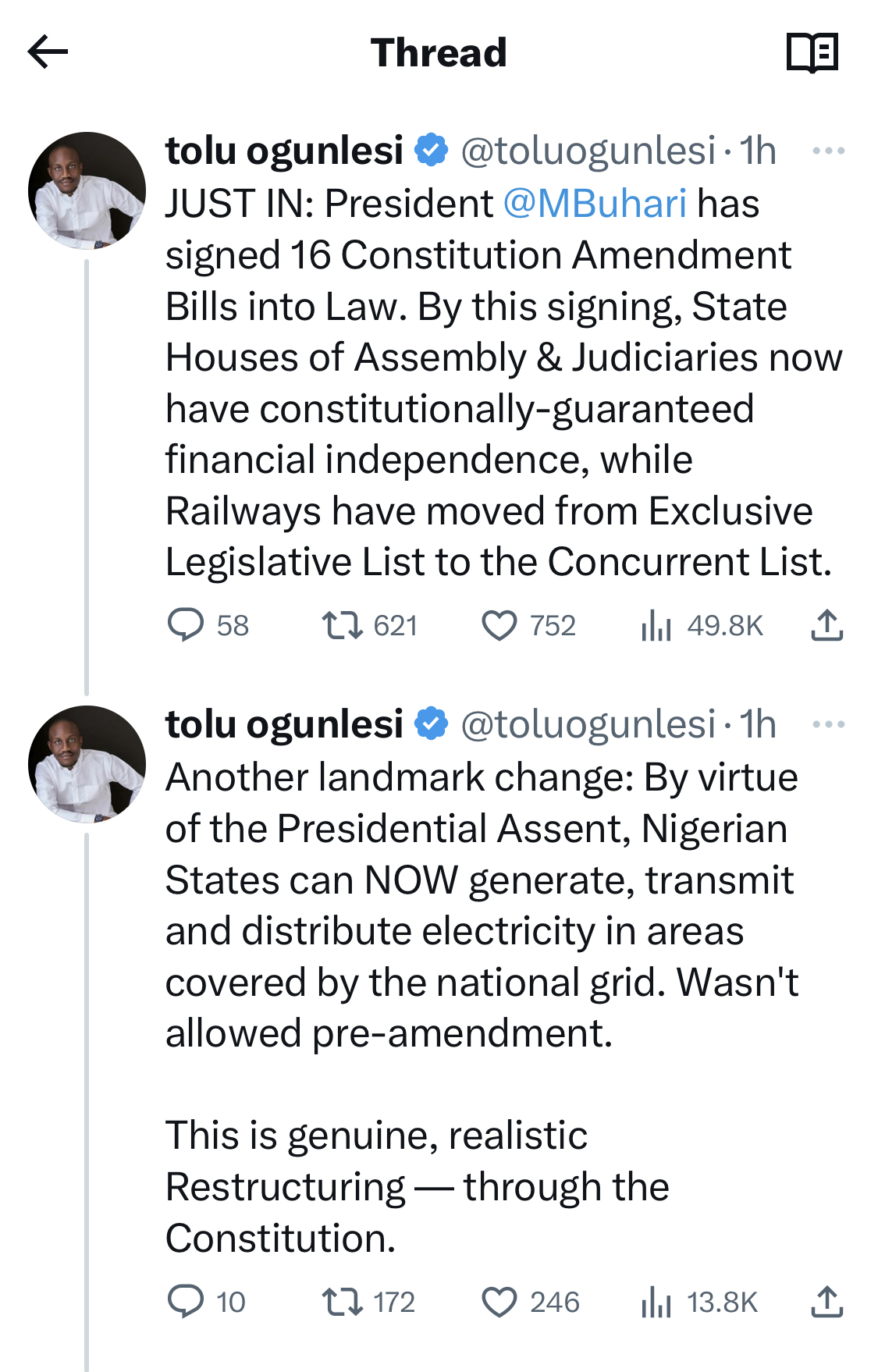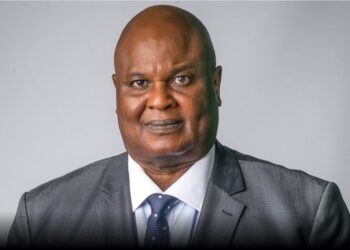Key highlights
- Nigerian states can now license the generation, transmission, and distribution of electricity.
- The policy change could improve the availability and reliability of electricity supply, attract more private investors, and provide financial independence to state governments.
- The effectiveness of the policy will depend on how well it is implemented and regulated by both the Federal Government and participating state governments.
Nigeria’s president, Buhari has signed into law a constitutional amendment allowing states in the country to license generate, transmit, and distribute electricity.
This was made known in a tweet by presidential media spokesperson Tolu Ogunlesi.
“JUST IN: President @MBuhari has signed
“Constitution Amendment Bills into Law. By this signing,”
“State Houses of Assembly & Judiciaries now have constitutionally-guaranteed financial independence, while Railways have moved from Exclusive Legislative List to the Concurrent List.”
He continues
“Another landmark change: By virtue of the Presidential Assent, Nigerian States can NOW generate, transmit and distribute electricity in areas covered by the national grid. Wasn’t allowed pre-amendment. This is genuine, realistic Restructuring – through the Constitution.”
JUST IN: President @MBuhari has signed 16 Constitution Amendment Bills into Law. By this signing, State Houses of Assembly & Judiciaries now have constitutionally-guaranteed financial independence, while Railways have moved from Exclusive Legislative List to the Concurrent List.
— Tolu Ogunlesi, MON (@toluogunlesi) March 17, 2023
What this means?
The implication of Nigeria’s president signing a constitutional amendment allowing states to license the generation, transmission, and distribution of electricity is significant for the country’s energy sector.
- This move means that Nigerian states can now participate in the electricity supply business, which was previously the exclusive preserve of the Federal Government as administered by the state regulator NERC.
- This policy change could potentially improve the availability and reliability of electricity supply in the country, as states would now have more autonomy to generate, distribute and regulate power within their respective territories.
- The new policy could also attract more private investors into the electricity sector, leading to increased competition and efficiency in the industry.
- In addition, the constitutional amendment gives financial independence to State Houses of Assembly and Judiciaries, which is a significant development in Nigeria’s governance structure, as it would ensure the autonomy and effectiveness of state governments.
Overall, the signing of the constitution amendment bills by President Buhari is a step in the right direction towards restructuring the Nigerian electricity sector and improving the country’s governance structure.
However, its effectiveness will depend on how well the policy is implemented and regulated by both the Federal Government and the participating state governments.


















